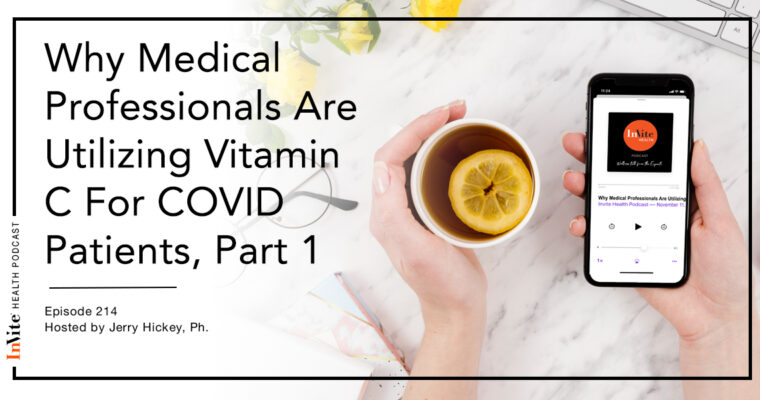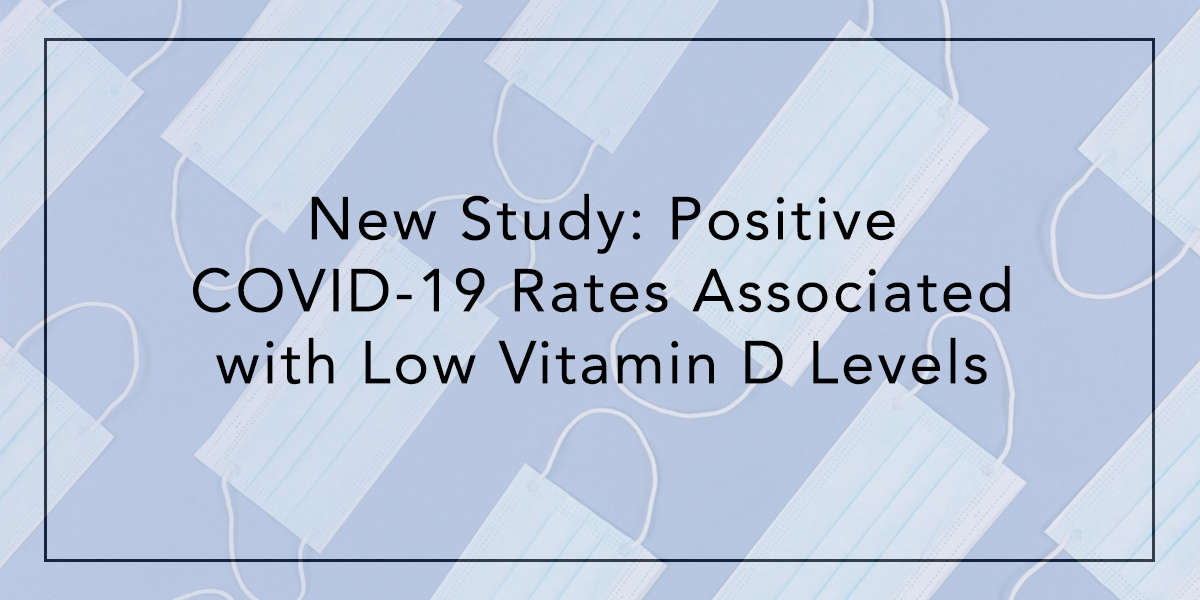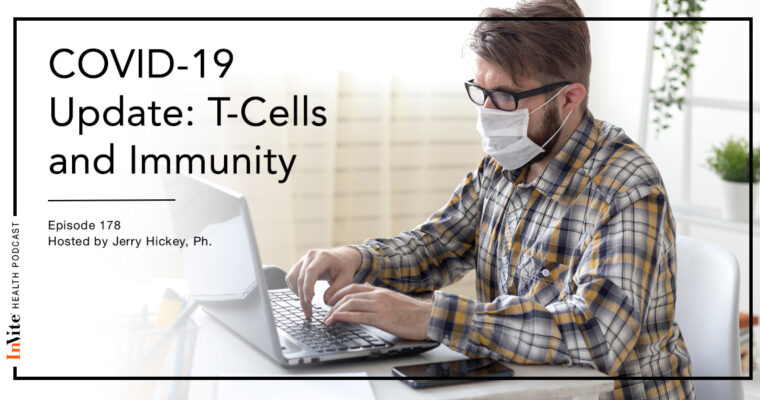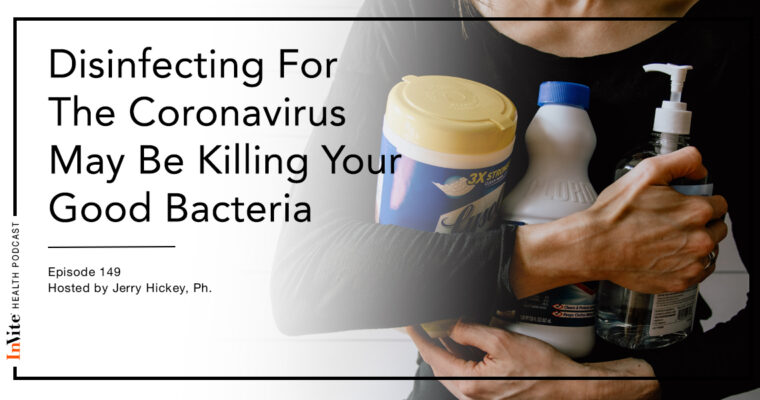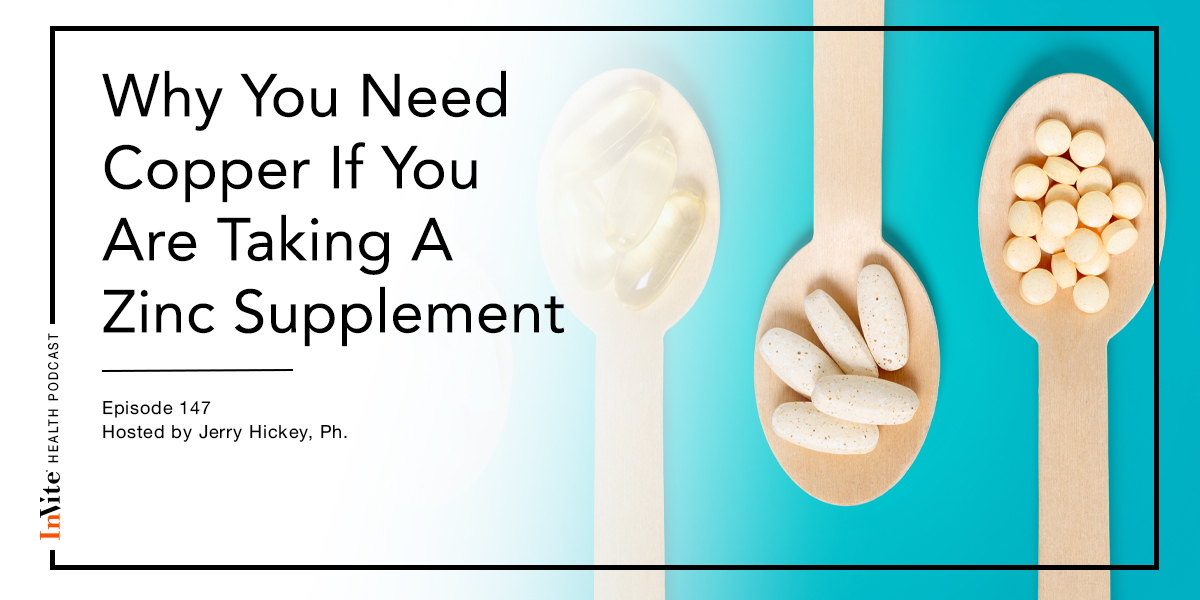Written by Antonia Brogna
Nutritional Copy Writer, InVite® Health
_____________
Some researchers are noting that Vitamin D levels can play an important role when it comes to COVID-19.
A new study completed by Quest Diagnostics and Boston University, published in the journal PLoS ONE, suggests that people with insufficient levels of Vitamin D are more likely to test positive for SARS-CoV-2, which is the coronavirus that causes COVID-19. In fact, these researchers found that people with a Vitamin D level below 20 ng/mL (considered the benchmark for deficiency) had a 54% higher chance of testing positive for the virus than people with sufficient levels of the nutrient.
This is not the first time that scientists have linked low levels of this vitamin to COVID-19, but this data is helping shed more light on the topic.
“Our findings provide further rationale to explore the role of vitamin D supplementation in reducing the risk for SARS-CoV-2 infection and COVID-19 disease,” the researchers wrote in their study. “If controlled trials find this relationship to be causative, the implications are vast and would present a cheap, readily-available method for helping prevent infection, especially for those with vitamin D deficiency. In the interim, the authors recommend responsible vitamin D supplementation based on personal needs, risk factors, and from personal physicians in accordance with existing Endocrine Society Guidelines.”
More Information on Vitamin D
Vitamin D, often called the sunshine vitamin, helps regulate nutrients such as calcium and phosphate, which are needed to ensure the health of the bones, teeth, and muscles. It is typically formed through a chemical reaction that takes place between the sun’s UV rays and the cholesterol on the skin, but approximately 70% of people living in North America are actually deficient in the vitamin. According to numerous studies, low Vitamin D levels can cause depression, bone and back aches, bone and hair loss, and frequent infections.†
Raising your Vitamin D levels can be as easy as making some changes to your daily routine. For instance, levels in the body can be increased by spending time in the sun with at least 40% of your body exposed to the UV rays. It can also be increased by eating fatty fishes and seafood, as well as mushrooms.
But for people who are trying those options and not seeing results, or are already so low in Vitamin D levels that they need an additional boost, supplementation may be a good option. These supplements are often relatively affordable and readily available, as the researchers stated in the paper. Speak with your doctor to have your Vitamin B blood levels tested and a certified healthcare professional on how to get started with supplementing with Vitamin D.†
VITAMIN D INFORMATION FROM CHIEF SCIENTIFIC DIRECTOR, JERRY HICKEY, PH.
Studies also show that Vitamin D plays a role in lung health and overall immune health, as Chief Scientific Officer Jerry Hickey, Ph., said in his podcast episode, ‘Update: Vitamin D, Lung Health & The Coronavirus.‘
“Vitamin D literally unites your immune system and mounts a better defense against infections,” he said. “It also helps your immune system work in a more balanced way, making it very important during cough and cold season and in the protection of your lungs.” He also said that Vitamin D “helps the immune system work appropriately so it is a strong enough fight against the infection, allowing just enough defense to protect you, while preventing the immune system from becoming out of control.” Jerry provided his own recommendations for listeners as well. “You want to get your Vitamin D levels above 35,” he said. “I would recommend taking about 6,000 units every day with food for seven days. After that, you can go down to 3,000 units a day. This should get you up to a nice sweet level pretty quickly.”
You can find the full study by clicking here or visiting https://journals.plos.org/plosone/article?id=10.1371/journal.pone.0239252.
For more information about Coronavirus, as well as other nutrients that can benefit your immune system, make sure to tune into the InVite® Health podcast, available anytime on our website.


